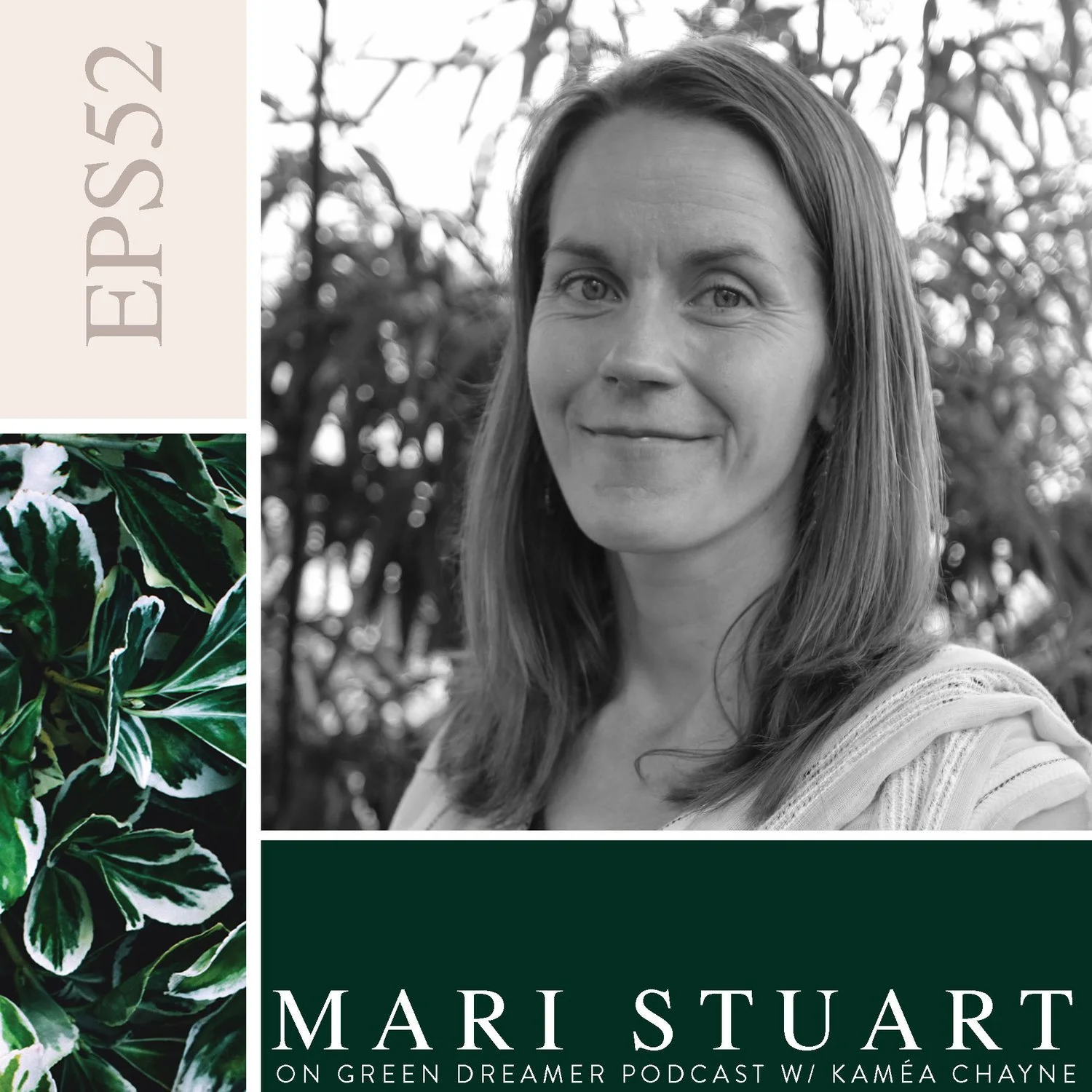Why it's time to go beyond 'organic' to regenerative agriculture
Once we've gone down the rabbit hole, digging up all the social, public health, and environmental issues we face today, how do we get ourselves out of there to actually take action and make a difference? Most people already understand and support the idea of 'organic,' which is great... But why is that not enough for sustainability? Why is regenerative agriculture the next big thing to support?
Mari Stuart, ecological designer, teacher, and Founder of Project Grounded, shares her wisdom with you. Let's dive in.
If you feel inspired by this episode, please consider donating a gift of support of any amount today!
This is a conversation on Green Dreamer Podcast with Kaméa Chayne, a show exploring environmental and intersectional sustainability from ideas to life. Subscribe to Green Dreamer on iTunes, Spotify, Stitcher, or any podcast app and let’s learn what it takes to thrive in every sense of the word!
Highlights
[2:18] What first inspired Mari's love for the environment.
[5:04] Kaméa: "What specifically did you learn about environmentalism that caused you to have your wakeup call?"
[6:23] What helped Mari to climb out of the rabbit hole of environmental issues.
[8:30] How Mari became an ecological designer and educator.
[9:08] Kaméa: "What motivated you to start Project Grounded?"
[10:00] Mari: "I wanted to found out: is there a way to make this movement relevant? To make it resonate with people who are not farmers themselves, but who want to make a difference in terms of the climate, who don't want to see our farmlands devastated, who want to eat healthy food, etc?"
[11:00] Mari on what regenerative farming is all about.
[15:05] Kaméa: "What are the keys to designing landscapes that support life in all of its forms?"
[17:22] Mari on her biggest challenge in keeping track of the different elements involved in regenerative farming.
[18:31] Kaméa: "Being an educator, what's your biggest frustration about the ways we're currently talking about environmentalism, and our need to go beyond that?"
[19:10] Mari: "We can do better than just organic."
[19:20] Mari explains the disconnect between people and food as a result of urbanization.
[20:55] The biggest differences between organic farming and regenerative farming.
[22:22] Kaméa: "What can we do as individual consumers to support regenerative farming?"
[25:18] How regenerative farming affects people in urban areas and is not only an environmental issue, but a personal health issue as well.
[26:27] Mari: "There is much more flavor and pleasure in responsibly-grown food."
[27:53] Kaméa: "What do you think we need most today to help us accelerate toward a thriving planet?"
[28:51] Mari: "While building connections to farmland, to farmers, and to where our stuff comes from, I think we also need to cultivate a sense of connectedness to others."
References
Keep in Touch
Project Grounded
Website: www.projectgrounded.com
Facebook: @projectgrounded
Instagram: @projectgrounded
Tips
To follow: Milkwood Permaculture
Words of inspiration: "Challenges make you stronger."
Health tip: "Walk in wild places."
Green tip: "Go to your local farmer's market."
Element of hope: "Seeing ordinary people all over the world get to work and take action."
Words of Wisdom: "Keep dreaming. And then find the stepping stones to get toward that dream."

